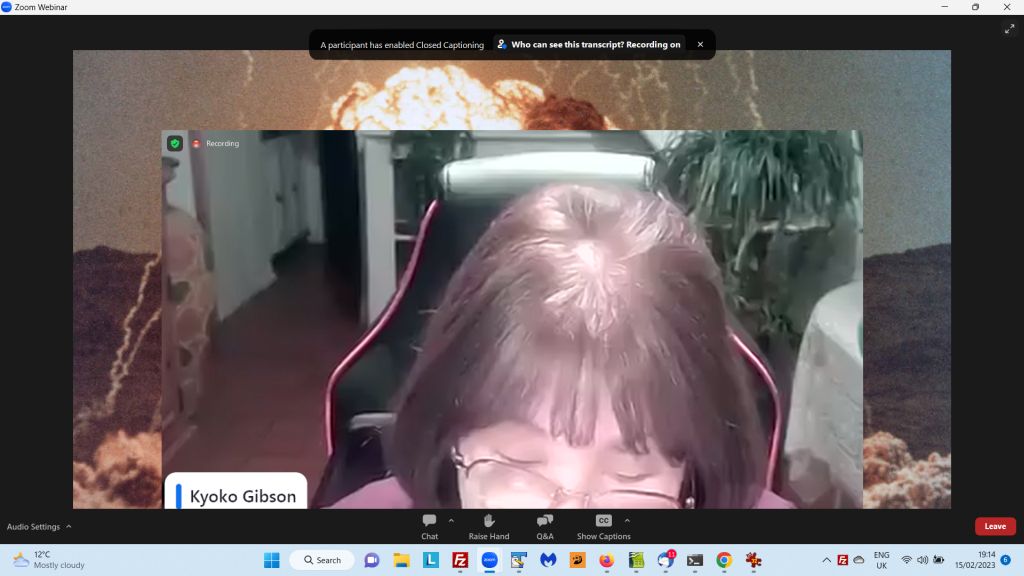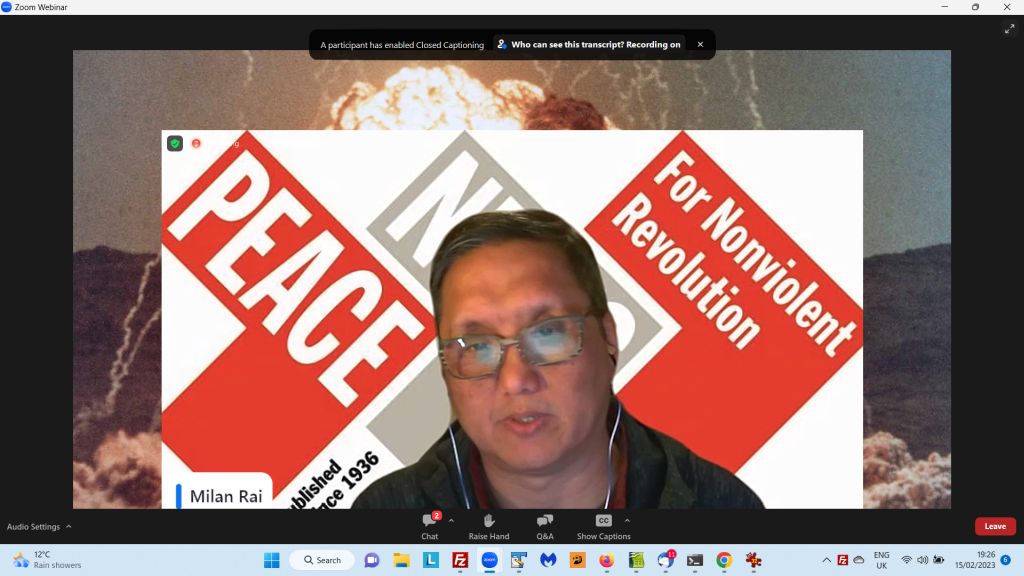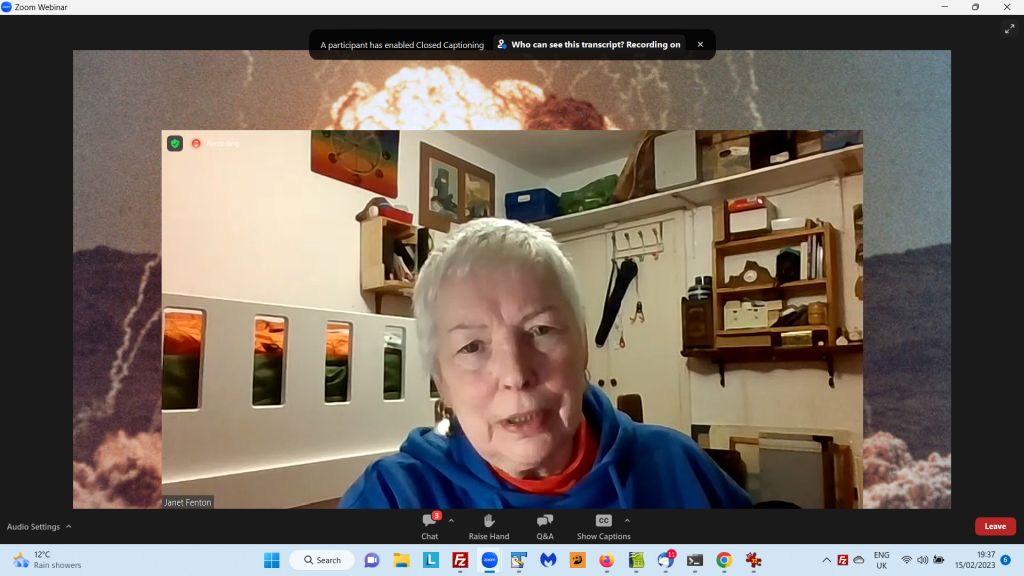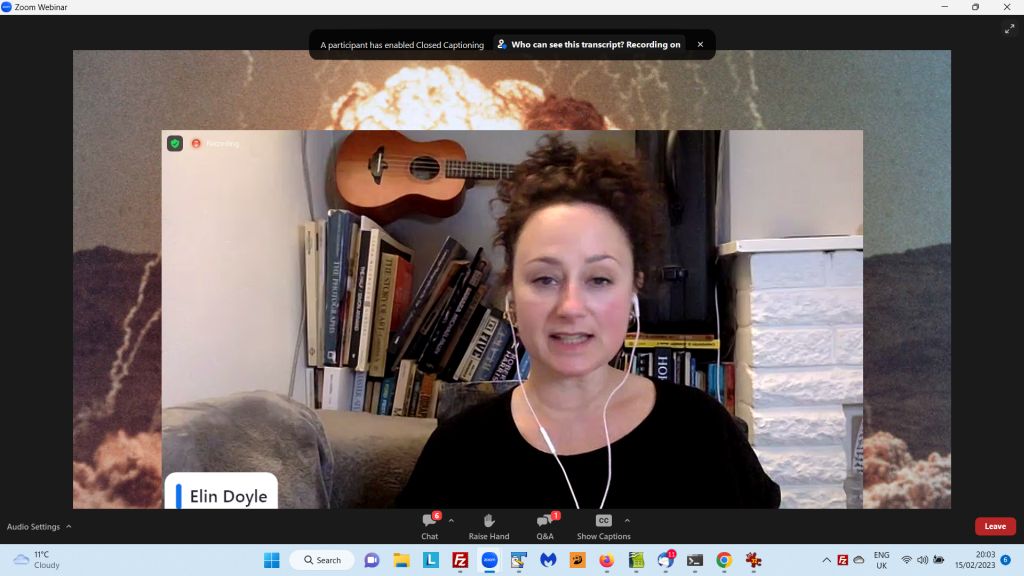Back from the brink
LONDON FREELANCE Branch organised a free online "salon" event in February about nuclear risks, their relevance in today's world and how they are covered in the press. Six renowned speakers from diverse fields - science, theatre, activism and journalism - joined forces for this unique evening.
Nuclear war is just one miscalculation away. Vladimir Putin has been warhead-rattling ever since his forces crossed the Ukraine border, and other world leaders still proudly test their nuclear fire power.
But it doesn't have to be like this. While nuclear weapons have yet to be banned in the same way as their chemical and biological counterparts, there are paths to get there.
To draw out what these might be, an extraordinary panel of experts participated in a live webinar on 15 February, hosted by London Freelance Branch. Presented as an informal "salon"-style event, the talks and subsequent Q&A reached out to Branch members and beyond, garnering high attendance on the night.

Kyoko Gibson apoloogised for reading her presentation
The evening opened with a shocking life witness report from anti-nuclear activist Kyoko Gibson. Born in Hiroshima in 1948, she is a "second generation hibakusha" (survivor of the atomic bombings) whose parents were exposed to the atomic bomb dropped on her city on 6 August 1945.
Gibson set the scene by recounting the immediate effects of the Hiroshima bomb: 70,000 people were killed instantly and another 40,000 died over the following four months. But she focused on the horror of what happened next. The bomb produced countless orphans; the population continued to eat contaminated food; suicide rates skyrocketed among those who had seen people melt before their eyes.
Kyoko and Les Gibson founded the petition campaign, One million voices for nuclear abolition, at www.uknucleardisarmament.co.uk.

Milan Rai
A journalistic view on how nuclear weapons actually function in British foreign policy was given by "proud NUJ member" Milan Rai, editor of Peace News. He described the notion of a nuclear deterrent protecting us from attack as a propaganda contruction to disguise how the implied nuclear threat is routinely used to intimidate and coerce other countries - nuclear or otherwise.
Rai gave multiple examples, from the secret history of the Vietnam war, later uncovered in the Pentagon Papers, through George W Bush's "Axis of Evil" speech to worrying statements by British government officials to the effect that a nuclear strike could be used to defend not just the British homeland but also its vital interests around the world.

Janet Fenton
Director of Words and Action for Peace, Janet Fenton, recounted how she first got engaged with the nuclear disarmament movement after reading Hiroshima, John Hersey's account of what happened there. She recognised the importance of the role of journalists in communicating such significant messages.
For Fenton, a key challenge for the anti-nuclear movement was in communicating the notion of risk: are the humanitarian consequences of nuclear war - or even of an accident during a convoy - worth the risk or maintaining a nuclear arsenal? Campaigners, she said, unlike the Ministry of Defence, are totally aware of risk.

Dr Philip Webber
Dr Philip Webber, chair of Scientists for Global Responsibility (SGR), observed that nuclear policy debate tended to be filled with misleading language such as a "minimum nuclear deterrent" or a "nuclear umbrella". He said it would be more accurate to call it an "unstoppable mega-death threat".
Dr Webber drew on a range of reports, evaluations and statistics to share key facts and figures on-screen with the webinar participants. He warned that mainstream media has been contaminated with deliberate misinformation to make people doubt truthful reports, and a factual push-back is needed.

Elin Doyle
Playwright, actor and comedian Elin Doyle, spoke about the background to writing her play Guinea Pigs, which premiered in London last year. She recounted how her mother left school as a teenager in the 1950s and secured a job as a lab technicianat AWRE, the Atomic Weapons Research Establishment in Aldermaston. One of her mother's anecdotes told how close they had come to triggering a nuclear disaster.
Her father, while on National Service, worked on the nuclear tests at Christmas Island in 1957.

Ben Donaldson
Ben Donaldson, Head of Campaigns at the United Nations Association UK, aimed to debunk the notion that the UK's nuclear weapons do not have any victims associated with them. He also criticised how campaigners - especially women -often get dismissed as peaceniks or apologists for Russia, while ignoring the wealth of global support for the Treaty on the Prohibition of Nuclear Weapons.
The event was organised and chaired by LFB member Elizabeth Ingrams.
 Watch the webinar now at the LFB YouTube channel: www.youtube.com/@nuj-lfb
Watch the webinar now at the LFB YouTube channel: www.youtube.com/@nuj-lfb
![[Freelance]](../gif/fl3H.png)